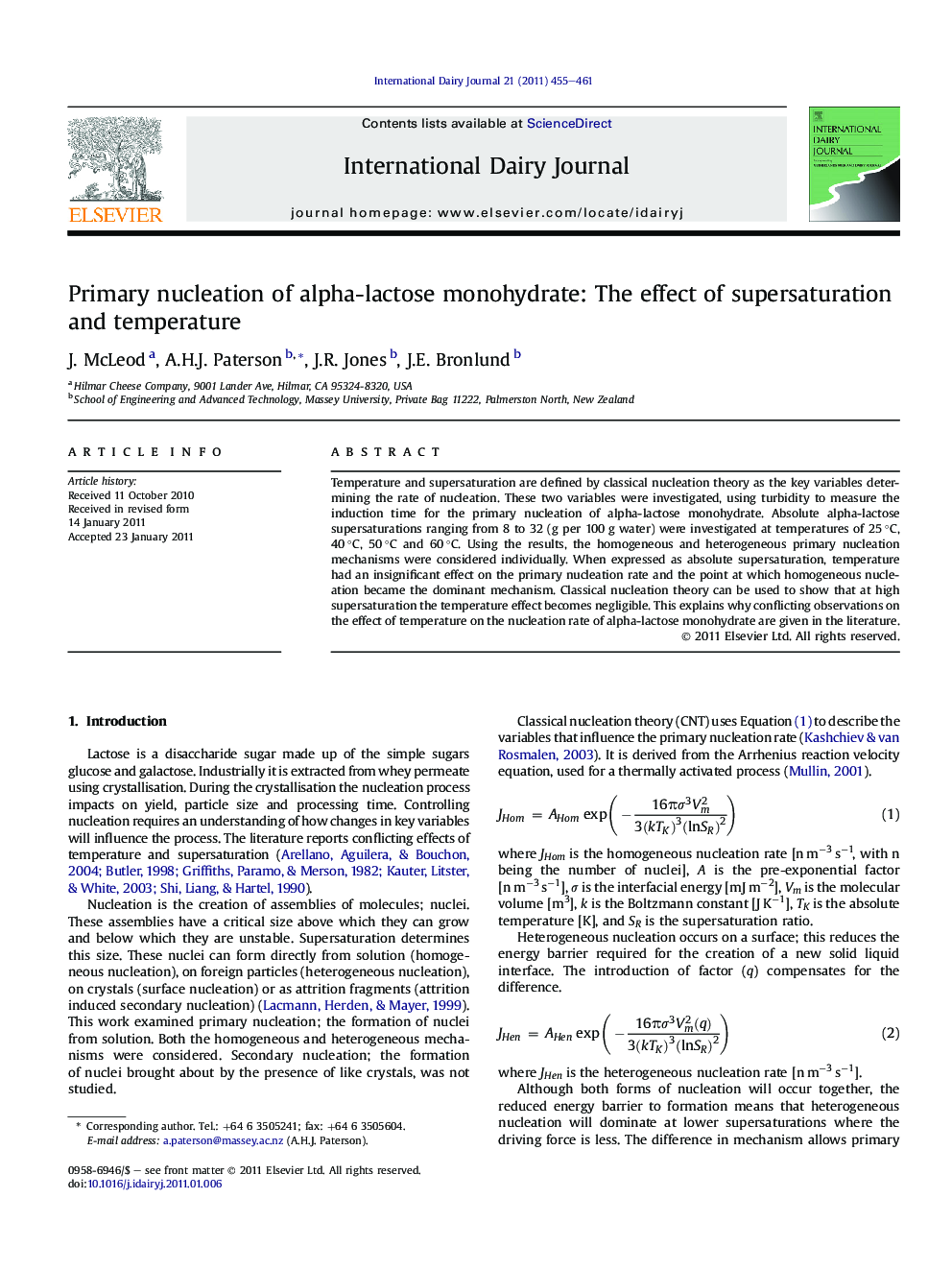| Article ID | Journal | Published Year | Pages | File Type |
|---|---|---|---|---|
| 2434932 | International Dairy Journal | 2011 | 7 Pages |
Temperature and supersaturation are defined by classical nucleation theory as the key variables determining the rate of nucleation. These two variables were investigated, using turbidity to measure the induction time for the primary nucleation of alpha-lactose monohydrate. Absolute alpha-lactose supersaturations ranging from 8 to 32 (g per 100 g water) were investigated at temperatures of 25 °C, 40 °C, 50 °C and 60 °C. Using the results, the homogeneous and heterogeneous primary nucleation mechanisms were considered individually. When expressed as absolute supersaturation, temperature had an insignificant effect on the primary nucleation rate and the point at which homogeneous nucleation became the dominant mechanism. Classical nucleation theory can be used to show that at high supersaturation the temperature effect becomes negligible. This explains why conflicting observations on the effect of temperature on the nucleation rate of alpha-lactose monohydrate are given in the literature.
